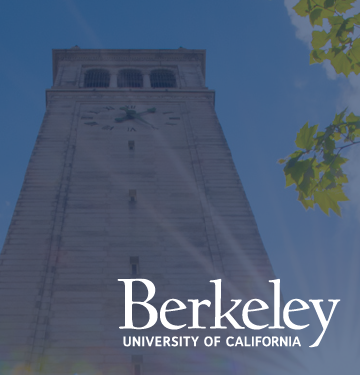Previously announced this May, 374 (opens in a new tab) Graduate Student Instructors (GSIs) were recipients of the Outstanding Graduate Student Instructor (OGSI) (opens in a new tab) Award, and were recognized for their exemplary teaching by the Graduate Division’s GSI Teaching & Resource Center (opens in a new tab). For the full list of the award recipients, visit this link (opens in a new tab).
In addition to being acknowledged by the award itself, OGSIs are invited to submit essays for a second award offered by the GSI Center, the Teaching Effectiveness Award (opens in a new tab). Each one-page essay addresses a problem the GSI had in teaching, the pedagogical solution the GSI devised to address the problem, and the means by which they assessed the effectiveness of the solution. This year, 16 essays were selected for the award. As in past years, this year’s winning essays will be published on the GSI Center’s website (opens in a new tab), so that the teaching strategies can be adapted for use by other GSIs.
Due to the ongoing COVID-19 pandemic, both the Outstanding GSI Award and Teaching Effectiveness Award Ceremonies were cancelled. Instead, departments were asked to find alternative ways to congratulate these outstanding instructors.
Teaching in Berkeley’s academic departments as a Graduate Student Instructor (GSI) is an invaluable professional development opportunity. Being recognized as one of the University’s finest is an outstanding achievement.
“Whether or not a GSI wins the TEA award, those who write the essays are contributing to their professional development by identifying significant problems encountered in teaching and learning, designing activities to address those problems, and assessing whether student learning was affected by the activities,” according to Linda von Hoene, Assistant Dean for Professional Development and Director of the GSI Teaching & Resource Center. “This type of reflection is the hallmark of outstanding teachers. And the beauty is that these skills of problem solving and assessment are transferable to other professions as well.”
The following is a full list of this year’s recipients:
Jeremy Adams, Chemical and Biomolecular Engineering, Mapping the Math: Using Concept Maps to Learn Controls Theory (opens in a new tab)
Jakob Dahl, Chemistry, Promoting Understanding from Experiments by Visualizing Results in an Introductory Organic Chemistry Lab (opens in a new tab)
Natalia Duong, Theater, Dance, and Performance Studies, Normalizing Access and Accommodation in Classrooms**Author has requested essay not to be published
Casey Finnerty, Civil & Environmental Engineering, Teaching Students to Think Creatively about Problems, not just Answer Them (opens in a new tab)
Jade Fostvedt, Chemistry, The Student Becomes the Master: Student-Led Problem Solving in “Flipped” Office Hours (opens in a new tab)
Holly Gildea, Helen Wills Neuroscience Institute, Reframing Failure: Teaching Iterative Troubleshooting over Results in Laboratory Science (opens in a new tab)
Natalie Graham, Environmental Science, Policy and Management, Putting Global Patterns in Perspective with Experiential Interdisciplinary Learning (opens in a new tab)
Samuel Kieke, Sociology, Social Theory as Puzzle: Piecing Together Conceptual Definitions (opens in a new tab)
Haefa Mansour, Chemical and Biomolecular Engineering, Revolutionizing Classroom Problem-Solving to Mimic the Real World (opens in a new tab)
Maryam Moeini Meybodi, Graduate School of Education, Task-Based Language Games: A Solution to Incorporation of Culture in Grammar Lessons (opens in a new tab)
Seiya Ono, Electrical Engineering and Computer Sciences, Lowering the Entry Barrier to Build Inclusive Lab Spaces (opens in a new tab)
Kate Pennington, Agricultural and Resource Economics, Inviting Students In: Improving Diversity by Increasing Participation (opens in a new tab)
Andrew Shi, Mathematics, Conquering the Top 10 Algorithms of the 20th Century (opens in a new tab)
Jonas Teupert, German, Collaborative Learning in Times of Remote Instruction (opens in a new tab)
Carly Trachtman, Agricultural and Resource Economics, Understanding Social Welfare Comparisons without Math Anxiety (opens in a new tab)
Please join us in congratulating them!
About the Author: Ashvini Malshe is a recent graduate of the Graduate School of Journalism, and a Professional Development Liaison with the Graduate Division.
